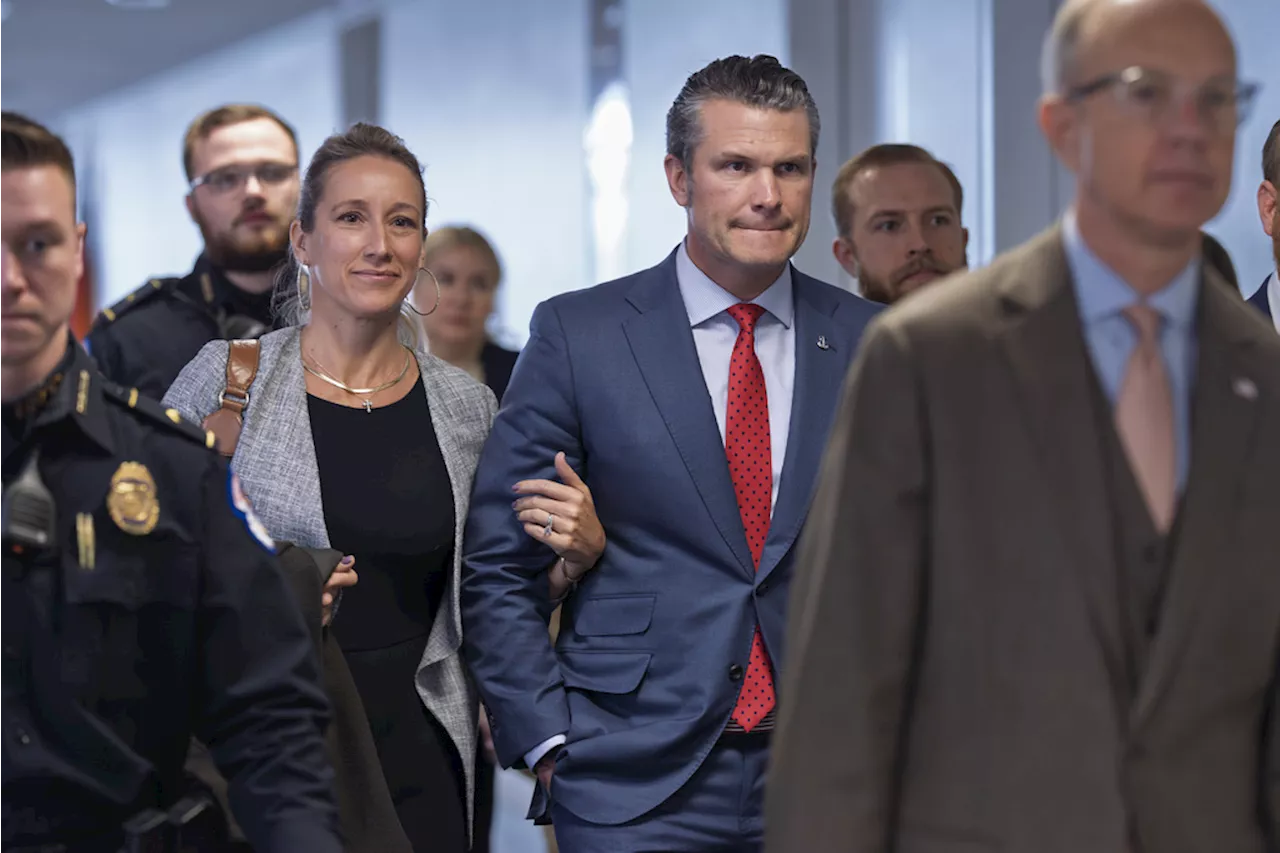This article explores the tension between religious freedom and Christian nationalism, arguing that genuine Christian faith promotes inclusivity and opposes the imposition of religious beliefs on others. Drawing from historical examples and the teachings of Jesus, the author contends that the separation of church and state is essential for protecting both religious liberty and the well-being of society.
If you are for religious freedom , you should be against Christian nationalism (the belief that the United States is a Christian nation and that the government should endorse Christianity and enforce its doctrines). I support religious freedom and oppose Christian nationalism because I am a Christian, a follower of Jesus.
Christians have for many years argued that faith has been excluded from the public square because secular elites have come to dominate institutions like public schools, universities, and government. The sometimes exclusion of religious perspectives from the public square is a legitimate concern, impacting both Christians and Americans of other faiths. Many Christians, believing that faith has been marginalized in secular society, now see Christian nationalism as a way of reasserting Christian perspectives in the public square. Christians are a majority of the American population. Why shouldn’t Christians hold the preeminent decision-making roles and ensure that American laws and schools reflect that preeminence? Recently confirmed Defense Secretary Pete Hegseth, who wrote a book entitled “American Crusade,” is among a number of public figures who have made statements consistent with Christian nationalism. Here’s the problem. The American founders, most of whom were Christians, could have very easily declared in the Constitution that the United States would be a Christian nation. They did not. Why not? The founders understood that whenever governments endorse and enforce a particular religion, bad things happen to both the government and the faith. The founders knew and lived a European history in which governments persecuted Christians who did not belong to the state-endorsed church. The Puritans were persecuted in England and had to flee because they did not belong to the state-endorsed Anglican Church. When opposing nations endorsed different versions of Christianity, say one endorsed Catholicism and the other some form of Protestantism, the conflict between them often escalated into a ‘holy war’ in which each side claimed God was on their side, making it easier to demonize and kill the heretics on the other side. And if the other side was not Christian, it was easy to get religious endorsement for conquest. Christian holy wars started after Emperor Constantine’s endorsement of Christianity in the fourth century and continue all the way to the present. Think of the Russian Orthodox patriarch’s blessing of Vladimir Putin’s war against Ukraine. The founders understood this history. That is why they adopted the first amendment, the foundation of the Bill of Rights, stating that ‘Congress shall make no law respecting an establishment of religion’ (No to Christian nationalism), ‘or prohibiting the free exercise thereof’ (Yes to religious freedom),Jesus did not align himself either with the power of the Roman Empire or the religious powers of the first century. Faith was central to a person’s life, too important to be a function of coercion or passive acceptance of someone else’s authority. Jesus called people to follow him. He did not try to seize political power to force people to follow him. Christian faith encourages compassionate and principled participation in society (and by extension, political life), but offers no support for religious coercion or domination of political life. Christians are called to follow Jesus and reject coercive forms of religious and political power, to live lives of love and wisdom. We want religious freedom for ourselves. Christ’s golden rule (‘Do to others what you would have them do to you,’ Matthew 7:12) requires that we assure that our fellow citizens of all faiths or of no faith have that same freedom. All should be welcome to participate in the American public square. So I urge my fellow Christians to say Yes to religious freedom for all and No to Christian nationalism
Christian Nationalism Religious Freedom Separation Of Church And State Jesus Christ U.S. Constitution First Amendment
United States Latest News, United States Headlines
Similar News:You can also read news stories similar to this one that we have collected from other news sources.
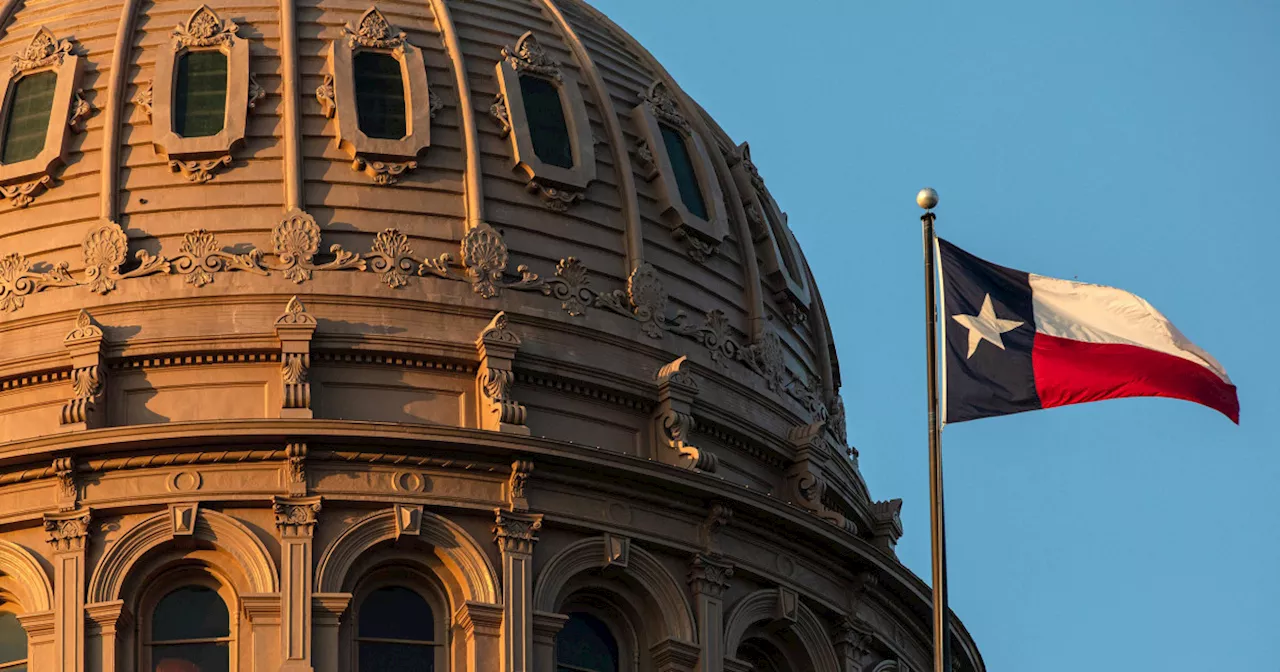 Christian Nationalism On Display as Texas House Elects SpeakerThe recent vote for Speaker of the Texas House of Representatives saw a loss for far-right conservatives, but the focus shifted to alarming scenes of Christian extremism unfolding at the state Capitol. The ongoing civil war within the Texas Republican party, fueled by the failed impeachment of Attorney General Ken Paxton, culminated in the election of Rep. Dustin Burrows, who secured support from Democratic lawmakers. The election sparked outrage among far-right figures, particularly Lt. Gov. Dan Patrick. More disturbingly, Christian extremists gathered at the statehouse, denouncing the separation of church and state and calling for a return to 'Holy Spirit' rule. This display of Christian nationalism, evident in the use of derogatory terms like 'Jezebel' against powerful women, raises concerns about the potential for theological rule to be imposed by far-right Republicans in Texas and beyond.
Christian Nationalism On Display as Texas House Elects SpeakerThe recent vote for Speaker of the Texas House of Representatives saw a loss for far-right conservatives, but the focus shifted to alarming scenes of Christian extremism unfolding at the state Capitol. The ongoing civil war within the Texas Republican party, fueled by the failed impeachment of Attorney General Ken Paxton, culminated in the election of Rep. Dustin Burrows, who secured support from Democratic lawmakers. The election sparked outrage among far-right figures, particularly Lt. Gov. Dan Patrick. More disturbingly, Christian extremists gathered at the statehouse, denouncing the separation of church and state and calling for a return to 'Holy Spirit' rule. This display of Christian nationalism, evident in the use of derogatory terms like 'Jezebel' against powerful women, raises concerns about the potential for theological rule to be imposed by far-right Republicans in Texas and beyond.
Read more »
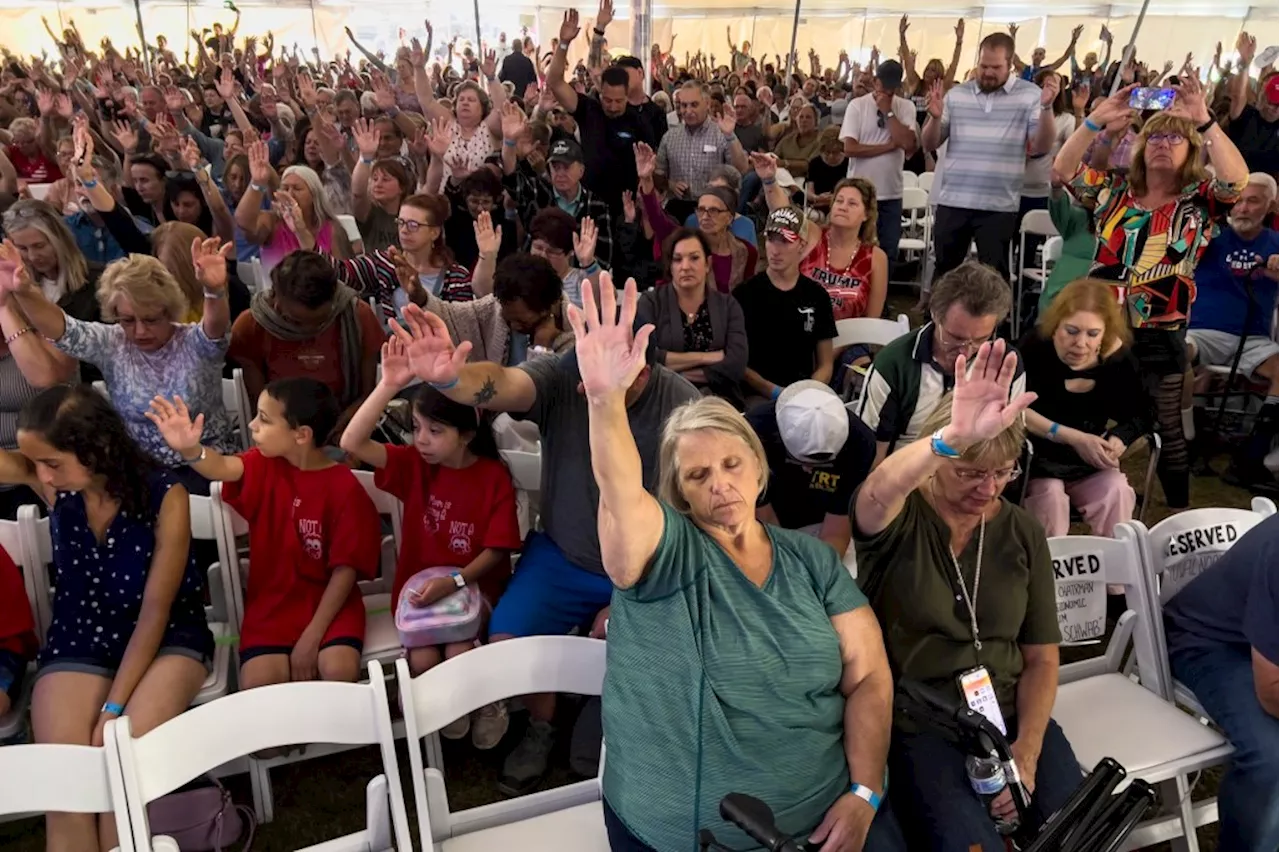 Christian Nationalism: A Troubling TrendThis text critically examines the rise of Christian nationalism, arguing that it contradicts core Christian values of love, humility, and unity. The author also criticizes President Trump's policies and actions, which he views as detrimental to democracy and the well-being of the country.
Christian Nationalism: A Troubling TrendThis text critically examines the rise of Christian nationalism, arguing that it contradicts core Christian values of love, humility, and unity. The author also criticizes President Trump's policies and actions, which he views as detrimental to democracy and the well-being of the country.
Read more »
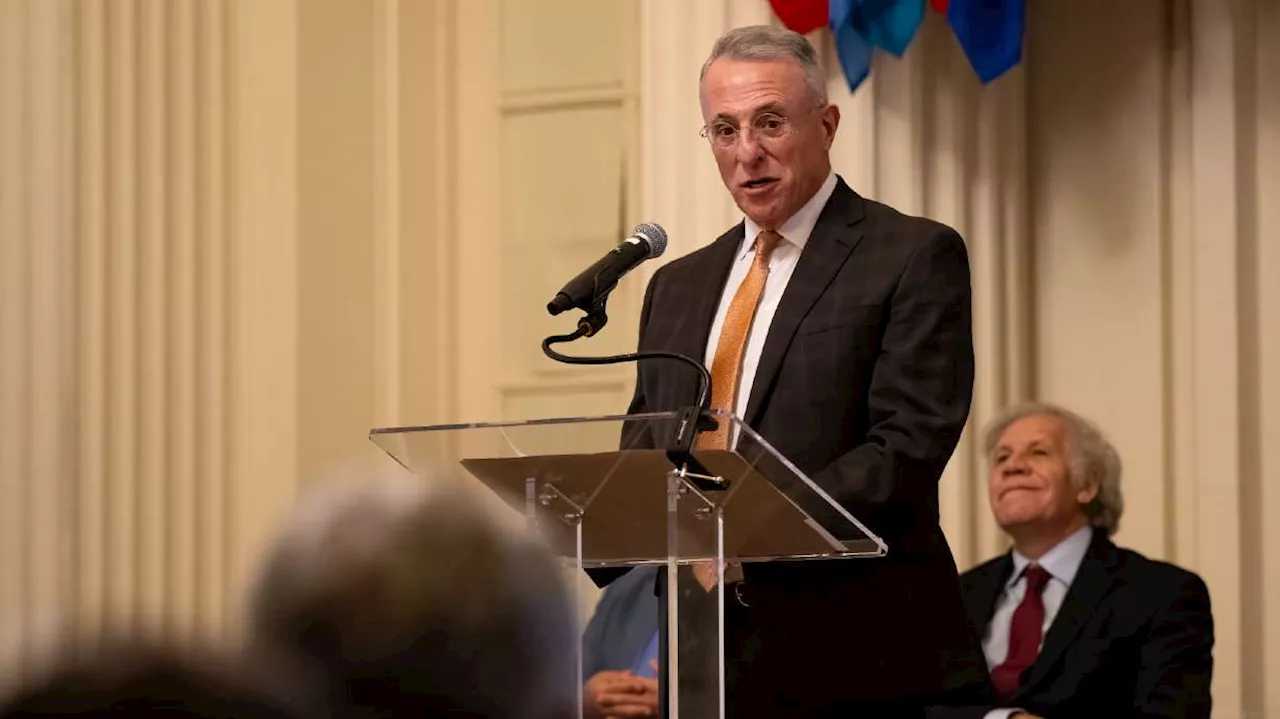 Elder Ulisses Soares encourages peacemaking at religious freedom conference in WashingtonElder Ulisses Soares, of the Quorum of the Twelve Apostles of The Church of Jesus Christ of Latter-day Saints, advocated for religious freedom, saying it is 'a key to peace and stability' at a national summit this week.
Elder Ulisses Soares encourages peacemaking at religious freedom conference in WashingtonElder Ulisses Soares, of the Quorum of the Twelve Apostles of The Church of Jesus Christ of Latter-day Saints, advocated for religious freedom, saying it is 'a key to peace and stability' at a national summit this week.
Read more »
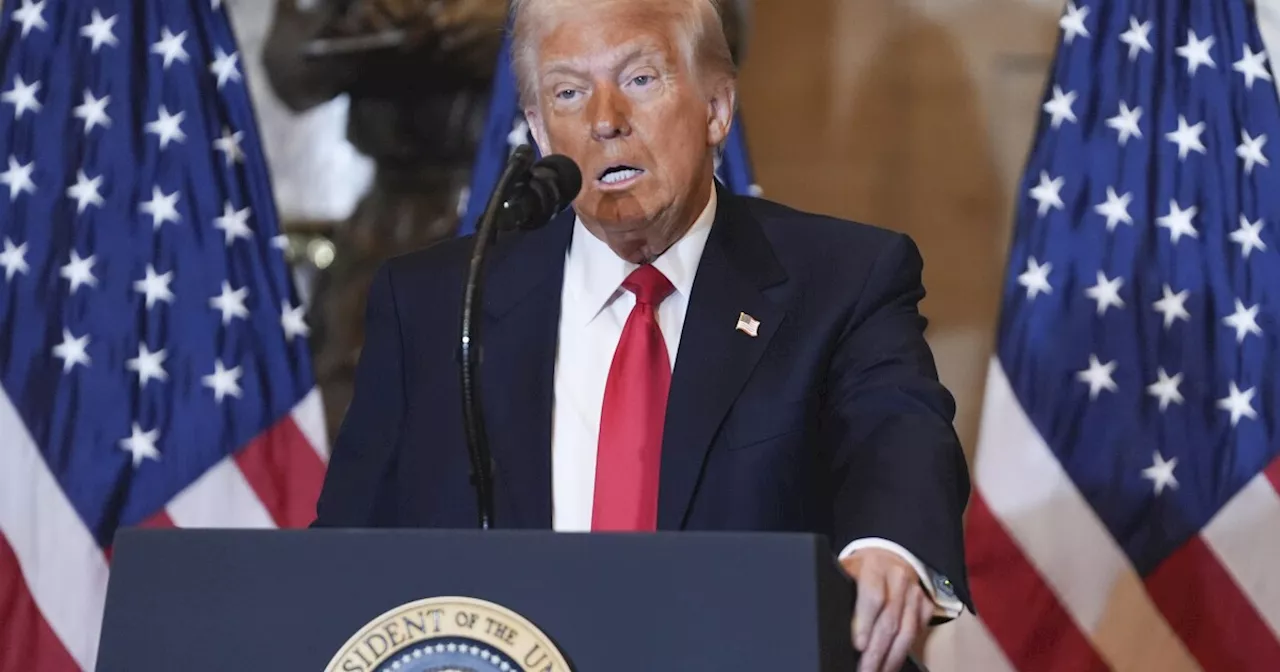 Trump Signs Executive Orders on Religious Freedom and ICC SanctionsPresident Trump took action on Thursday, signing two executive orders: one aimed at protecting religious freedoms of Americans and another imposing sanctions on the International Criminal Court (ICC). The first order directs Attorney General Pam Bondi to lead a task force against alleged 'anti-Christian bias' in the federal government, while the second order freezes assets and bans travel to the U.S. for ICC officials involved in issuing arrest warrants for Israeli leadership.
Trump Signs Executive Orders on Religious Freedom and ICC SanctionsPresident Trump took action on Thursday, signing two executive orders: one aimed at protecting religious freedoms of Americans and another imposing sanctions on the International Criminal Court (ICC). The first order directs Attorney General Pam Bondi to lead a task force against alleged 'anti-Christian bias' in the federal government, while the second order freezes assets and bans travel to the U.S. for ICC officials involved in issuing arrest warrants for Israeli leadership.
Read more »
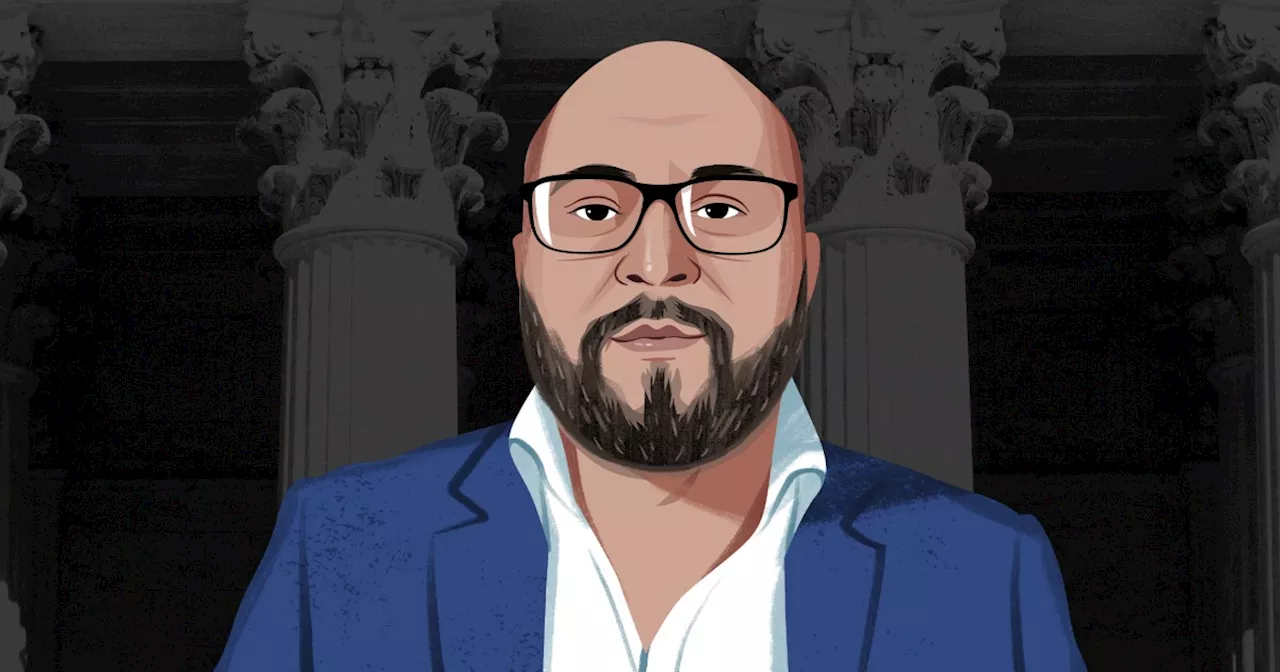 Supreme Court to Weigh Religious Freedom Claims in Public School Curriculum DisputeThe Supreme Court will hear a case concerning whether public schools violate parents' religious freedom by teaching about gender and sexuality without offering opt-out options. The case, Mahmoud v. Taylor, involves parents who argue that such instruction conflicts with their religious beliefs. The court's decision could significantly impact the balance between religious freedom and public education.
Supreme Court to Weigh Religious Freedom Claims in Public School Curriculum DisputeThe Supreme Court will hear a case concerning whether public schools violate parents' religious freedom by teaching about gender and sexuality without offering opt-out options. The case, Mahmoud v. Taylor, involves parents who argue that such instruction conflicts with their religious beliefs. The court's decision could significantly impact the balance between religious freedom and public education.
Read more »
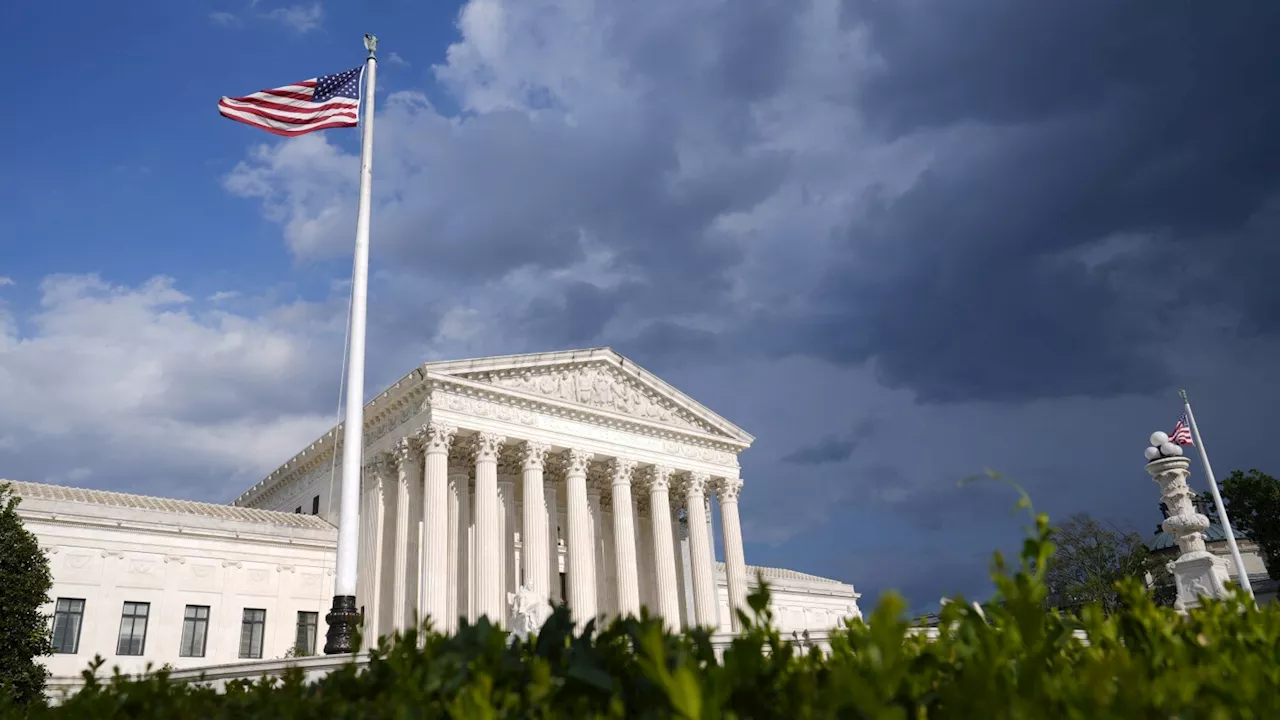 Supreme Court to Weigh Religious Freedom in Public School CaseThe US Supreme Court has agreed to review a case involving a Catholic charter school in Oklahoma, potentially reigniting a debate about the separation of church and state. The case centers on whether a taxpayer-funded religious charter school violates the First Amendment.
Supreme Court to Weigh Religious Freedom in Public School CaseThe US Supreme Court has agreed to review a case involving a Catholic charter school in Oklahoma, potentially reigniting a debate about the separation of church and state. The case centers on whether a taxpayer-funded religious charter school violates the First Amendment.
Read more »
